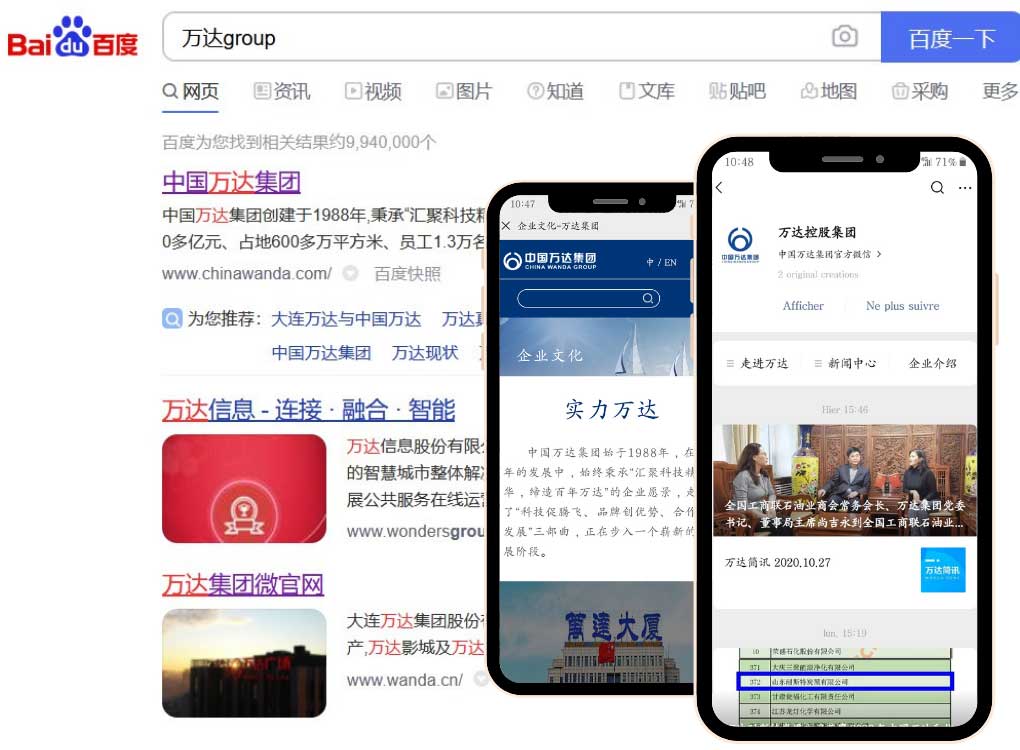International Real Estate Market for China

Is the wave of China’s overseas real estate investment gradually receding?
Paul Guan, a partner at Paul Hastings, a global law firm, said: “The demand for overseas acquisition no longer exists.” He guides Chinese institutional investors overseas in the real estate industry. Officials all know that the Chinese government has issued a clear signal that it wants to curb the overseas investment in the real estate industry.
The move will put pressure on prices in key real estate markets, from New York to London. According to Real Capital Analytics, China’s three major overseas destinations for real estate investors in 2016 were the United States, Hong Kong and Australia, while in the past six months the majority of transactions in the United Kingdom and the United States were mainly in the United Kingdom and the United States.
Cost-Effective Agency
KPI and Results focused. We are the most visible Marketing Agency for China. Not because of huge spending but because of our SMART Strategies. Let us help you with: E-Commerce, Search Engine Optimization, Advertising, Weibo, WeChat, WeChat Store & PR.
The epidemic has caused global real estate prices to fall, and Chinese buyers’ interest in overseas real estate has rebounded, but uncertainty has made many investors wait for the opportunity.
Chinese international property investors are more rational than before
In 2016, the Chinese were the largest real estate investors in the United States and Australia, accounting for 25% of the United States and 26% of Australia. According to Morgan Stanley, they accounted for 25% of all commercial acquisitions in London in 2016, and about 80% of the residential land sold in Hong Kong so far this year has been acquired by Chinese companies. Financial services firms say China’s investment in the city has quadrupled since 2012.
Hans Kang, chief investment officer at InfraRed NF Investment Advisers, said: “Trading volume will definitely fall in hot areas and property prices may also be affected.” Statistics show that in 2018, China’s overseas real estate investment plummeted 63% year-on-year to US$15.7 billion, a record low in the past four years.
As far as investment destinations are concerned, the United States has lost its “first choice for Chinese investment” status for two consecutive years. Hong Kong, China, was most favored by mainland investors last year, replacing the United States, becoming the first choice for mainland investors. Last year it was the first time that “net outflow of Chinese investment in real estate in the United States” occurred. In Europe, last year there was also an overall net outflow of Chinese assets.
Under the influence of tightening financial policies, China’s overseas real estate investment will remain low and stable, and Chinese investors are becoming more and more rational.
Approval from Regulators
Dalian Wanda Group reversed a £470 million ($605.65 million) acquisition of nine Elms Square sites in London after the announcement of the government’s new capital controls. Since 2013, the foreign investment of Chinese enterprises has surged. With the continuous accumulation of foreign exchange reserves, Beijing has pushed more enterprises to go abroad.
However, since 2015, at a time when the Renminbi has been devalued sharply, the real estate bubble in China is worried and there is a problem in the domestic balance of payments, the government has begun to worry about the scale of capital outflows, especially the size of the real estate industry.
There are also worries about companies that borrow money in mainland China to buy overseas assets, which runs counter to Chairman Xi Jinping’s deleveraging. Kang said: “If the external market fluctuations, which may affect the financial stability of China’s banking system.
In the past few months, policymakers stepped up regulation of “irrational overseas investment” and asked banks to verify the credit risk exposure of a group of active traders such as Wanda, Fosun International, HNA Group and Ampang Insurance Group mouth.
Chinese companies shopped spree all around the world
All of these companies have been shopping spree in the overseas real estate market in recent years.
For example, in 2014, Ampang made headlines for its $2 billion acquisition of the Waldorf Astoria hotel in New York.
HNA owns HNA Group at the same time last year to 6.5 billion acquisition of a 25% stake in Hilton Worldwide Holdings. Since November last year, four residential sites in Hong Kong also recorded HK $ 27.2 billion.

Wang Jianlin, one of China’s largest real estate developers, has invested in two large complex projects in Australia since 2014, worth about 2 billion Australian dollars (1.58 billion U.S. dollars).
But right now, these deal makers find themselves subject to rigorous government scrutiny, their ambitious global plans have come to an abrupt end and their focus is shifting to the domestic market.
Wang Xiaoming revealed to the financial media Caixin Media that his company has “actively respond to the call of the state and transfer major investments to China” after it sold $9.3 billion of assets to its rivals to pay its debts.
Chinese tightening capital controls in Beijing caused the loss of appetite for Hong Kong assets
The global market has felt the decline. According to Morgan Stanley, outbound property investment by Chinese companies in mainland China dropped 82% in the first half of 2016 and kept declining by 84% to $1.7 billion throughout the year. In 2016, the total investment amounted to 10.6 billion U.S. dollars.
The report noted that this trend would create resistance to the medium-term prices in Hong Kong, the United States, the United Kingdom, and Australia, especially in Manhattan, central London, and Hong Kong, the most exposed locations.

Guan Guanjun, a law firm, said the same is true for New York’s high-end residential market
Hit by the loss of Chinese buyers. According to Olson Real Estate, for the first time since October 2012, the company has signed contracts worth more than $10 million in Shanghai. Other more positive and believed that the impact of the restrictions will be limited to the relevant market, which will continue to be formed by broader macroeconomic trends and fundamentals.
Restrictions do not prevent Chinese companies from investing abroad
New Silk Road gave investors hope and many Chinese companies have relocated. If they want to invest in real estate, they may continue to issue debt or equity through overseas platforms, according to Briggs F executive vice president Ben Briggs Scott International Real Estate “We’re investing in a quieter and more complex way.
” Lam Lam, senior director at Knight Frank, said the restrictions do not prevent Chinese companies from investing abroad. In the long run, going to the world will continue. This will be an important means for Chinese enterprises to diversify risks and achieve sustainable returns. ” The United States, the Belt, and Road countries, and the United Kingdom have become the top three destinations for mainland investors’ overseas real estate investment in 2019.
How to gain Chinese investors’ trust?
Chinese investors have giant potential in the international property market, and they are also more rational than in the past years. How to gain their confidence in your property propositions is very important for overseas businesses.
You need to go through several key factors in order to sell your property on the market. Working on your visibility and improving your brand image is primordial for your success. Aiming at the Chinese market, you must adapt specific strategies to the market. Chinese digital marketing channels and rules are not the same as in other countries.
You can read this article to learn more about strategies to conquer the Chinese real estate market: How to collaborate with Chinese Real estate agents in 2020?

GMA has been engaging in digital marketing for foreign businesses since 2012. Through our profession and passion, we have helped our partners to gain the market. If you want to win the heart and gain the confidence of the Chinese real estate buyers, contact us, we will not let you down.








Chinese investors dominate Golden Visas in Greece
From the launch of Golden Visa program until the end of 2018 a total of 3,892 permits were issued,+961% in 2017.
for a total of 4,154 investors benefiting from the program, Chinese Real estate investors dominate the program’s , as they account for 58% of the residence permits, or 2,416,
Crazy no?
Very good article. I quote you in my blog 🙂